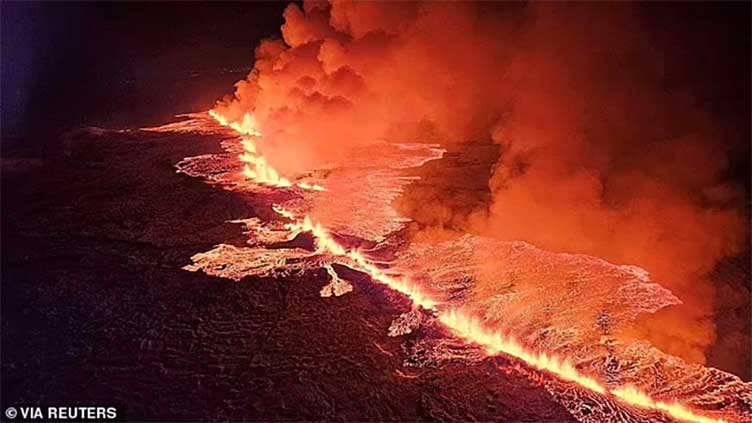Scientists warn of impending volcanic eruption as humanity has no plan address it

Technology
The effects could be even worse than in 1815
(Web Desk) - Earth faces a one-in-six chance of experiencing a massive volcanic eruption this century, scientists warn, and 'humanity has no plan to address it.'
Such an event, according to climate professor Dr. Markus Stoffel, could trigger 'climate chaos' similar to the 1815 eruption of Indonesia's Mount Tambora.
That eruption released 24 cubic miles of gases, dust, and rock into the atmosphere, causing global temperatures to plummet.
Crops failed, famine spread, diseases surged, and tens of thousands of people died.
Unlike the 'Year Without a Summer' that followed Tambora's eruption, a 21st-century mega-volcano would add to the disruptions already caused by humanity's reliance on fossil fuels.
'The effects could be even worse than in 1815,' geological scientist Dr. Michael Rampino explained. 'The world is more unstable now.'
Ironically, the greenhouse gases released over the past century could make the aftermath of such an eruption even colder.
Volcanologist Dr. Thomas Aubry's research suggests that a hotter, more turbulent atmosphere would spread sulfur dioxide gas—and the cooling sulfate aerosols it forms—more quickly, intensifying the cooling effect.
A wider distribution of these sunlight-reflecting airborne compounds would make them more effective by reducing their chances of colliding and clumping up.
'There is a sweet spot in terms of the size of these tiny and shiny particles,' said Cambridge atmospheric scientist Dr Anja Schmidt — a 'just right' size range 'where they are very efficient at scattering back the sunlight.'
Our future and likely hotter atmosphere, according to a study she co-authored with Dr Aubry for Nature Communications in 2021, would remove 30 percent more solar energy in certain 'global warming' scenarios coming soon.
'We suggest that would amplify the surface cooling by 15 percent,' Dr Aubry said.
But there are also troubling uncertainties, as Dr Stoffel, who teaches at the University of Geneva, told CNN.
'We're just at the beginning of getting an idea of what could happen,' he said.
When it comes to older volcanoes, 'we have very poor data,' Stoffel explained, making it more challenging to reconstruct a model of their impact.


